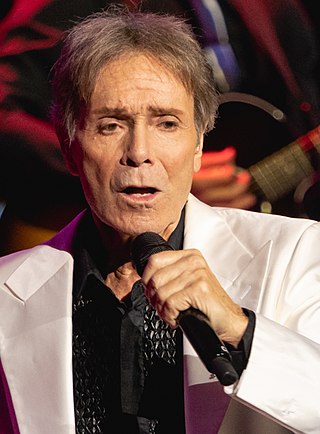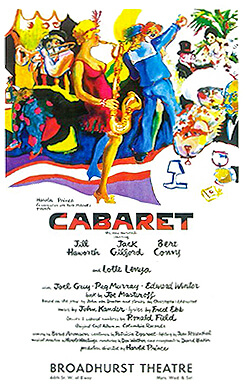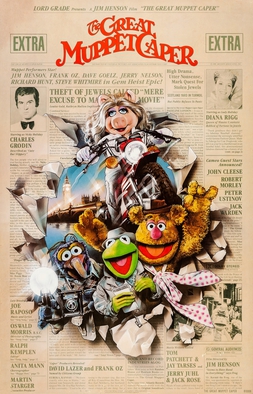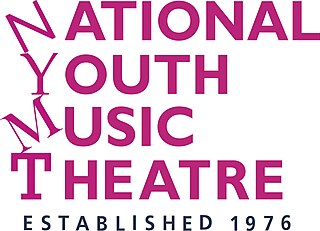
Sir Cliff Richard is a British singer and actor. He has total sales of over 21.5 million singles in the United Kingdom and, in 2002, was the third-top-selling artist in UK Singles Chart history, behind the Beatles and Elvis Presley.

Lionel Bart was a British writer and composer of pop music and musicals. He wrote Tommy Steele's "Rock with the Caveman" and was the sole creator of the musical Oliver! (1960). With Oliver! and his work alongside theatre director Joan Littlewood at Theatre Royal, Stratford East, he played an instrumental role in the 1960s birth of the British musical theatre scene after an era when American musicals had dominated the West End.

Robert Adolph Wilton Morley CBE was an English actor who enjoyed a lengthy career in both Britain and the United States. He was frequently cast as a pompous English gentleman representing the Establishment, often in supporting roles. In 1939 he received an Academy Award nomination for Best Supporting Actor for his portrayal of King Louis XVI in Marie Antoinette.

Cabaret is a musical with music by John Kander, lyrics by Fred Ebb, and a book by Joe Masteroff. It is based on the 1951 play I Am a Camera by John Van Druten, which in turn was based on the 1939 novel Goodbye to Berlin by Christopher Isherwood.
Peter Murray James,, known professionally as Pete Murray, is a British radio and television presenter and actor. He is known for his career with the BBC including stints on the Light Programme, Radio 1, Radio 2 and Radio 4. In the 1950s, Murray became one of Britain's first pop music television presenters, hosting the rock and roll programme Six-Five Special (1957–1958) and appearing as a regular panellist on Juke Box Jury (1959–1967). He was a recurring presence in the BBC's coverage of the Eurovision Song Contest. Murray returned to broadcasting for a Boom Radio special on Boxing Day 2021, over 70 years after his career began. He returned to the station on Boxing Day 2022 where he presented a two-hour show alongside his friend, David Hamilton.

Gertrude Lawrence was an English actress, singer, dancer and musical comedy performer known for her stage appearances in the West End of London and on Broadway in New York.

Alan Leslie Freeman MBE, nicknamed "Fluff", was an Australian-born British disc jockey and radio personality in the United Kingdom for 40 years, best known for presenting Pick of the Pops from 1961 to 2000.

Summer Holiday is a 1963 British CinemaScope and Technicolor musical film starring singer Cliff Richard. The film was directed by Peter Yates, produced by Kenneth Harper. The original screenplay was written by Peter Myers and Ronald Cass.

The Great Muppet Caper is a 1981 musical heist comedy film directed by Jim Henson and the second theatrical film featuring the Muppets. The film stars Muppet performers Henson, Frank Oz, Dave Goelz, Jerry Nelson, Richard Hunt, and Steve Whitmire, as well as Charles Grodin and Diana Rigg with special cameo appearances by John Cleese, Robert Morley, Peter Ustinov, and Jack Warden. The film was produced by ITC Entertainment and The Jim Henson Company and distributed by Universal Pictures. In the plot, the Muppets are caught up in a jewel heist while investigating a robbery in London.
Ronald Cass, also known as Ronnie Cass, was a British screenwriter, composer, playwright, novelist and music director. He co-wrote the screenplays for the Cliff Richard films The Young Ones (1961) and Summer Holiday (1963).

The Young Ones is a soundtrack album by Cliff Richard and the Shadows to the film of the same name. It is their first soundtrack album and Richard's sixth album overall. It was produced by Norrie Paramor, with music by Ronald Cass and Stanley Black. The album topped the UK Albums Chart for six weeks and charted for 42 weeks in total when the chart was a top twenty. The album became the first UK soundtrack to sell more than one million copies in total, combining UK and international sales.

Sir Noël Peirce Coward was an English playwright, composer, director, actor, and singer, known for his wit, flamboyance, and what Time magazine called "a sense of personal style, a combination of cheek and chic, pose and poise".

The Vortex is a play in three acts by the English writer and actor Noël Coward. The play depicts the sexual vanity of a rich, ageing beauty, her troubled relationship with her adult son, and drug abuse in British society circles after the First World War. The son's cocaine habit is seen by many critics as a metaphor for homosexuality, then taboo in Britain. Despite, or because of, its scandalous content for the time, the play was Coward's first great commercial success.

Dreamboats and Petticoats is a jukebox musical based on popular songs from the fifties and early sixties. The musical, featuring those songs of the rock 'n' roll era, is set around the years 1957 to 1963 and was written by Laurence Marks and Maurice Gran.
Beryl May Jessie Toye,, known professionally as Wendy Toye, was a British dancer, stage and film director and actress.

The National Youth Music Theatre (NYMT) is an arts organisation in the United Kingdom providing pre-professional education and musical theatre stage experience for young people. Based in London, it is constituted as a private limited company and as a registered charity. NYMT was founded in 1976 by director and playwright Jeremy James Taylor. Since its inception, it has produced over fifty productions at the Edinburgh Festival Fringe, premièred thirty new musical theatre works, toured several times outside the United Kingdom, and had runs in the West End and on Broadway. Amongst the many alumni of the National Youth Music Theatre who have gone on to careers in the performing arts are actors Idris Elba and Jude Law, both of whom are also patrons of the organisation, along with Jonny Lee Miller, Dylan Strazar, Sheridan Smith, Connie Fisher, and Matt Lucas. Alumni have also included directors such as Jo Davies, and songwriters such as Tara Mcdonald.
Carole Gray is a British actress and dancer, who was born in Southern Rhodesia known for her roles throughout Britain in 1960s West End musicals and her roles in films.
William Hammerstein was an American theater manager. He ran the Victoria Theatre on what became Times Square, Manhattan, presenting very popular vaudeville shows with a wide variety of acts. He was known for "freak acts", where celebrities or people notorious for scandals appeared on stage. Hammerstein's Victoria Theatre became the most successful in New York.
Grazina Frame is an English stage and screen actress, singer and voice double

Laddie Cliff was a British dancer, choreographer, actor, producer, writer, and director of comedy, musical theatre and film. He was noted for his versatility. His many London West End theatre appearances and films included a long association with fellow thespian Stanley Lupino. He was married to the actress Phyllis Monkman. He died in 1937 after a period of ill health.














